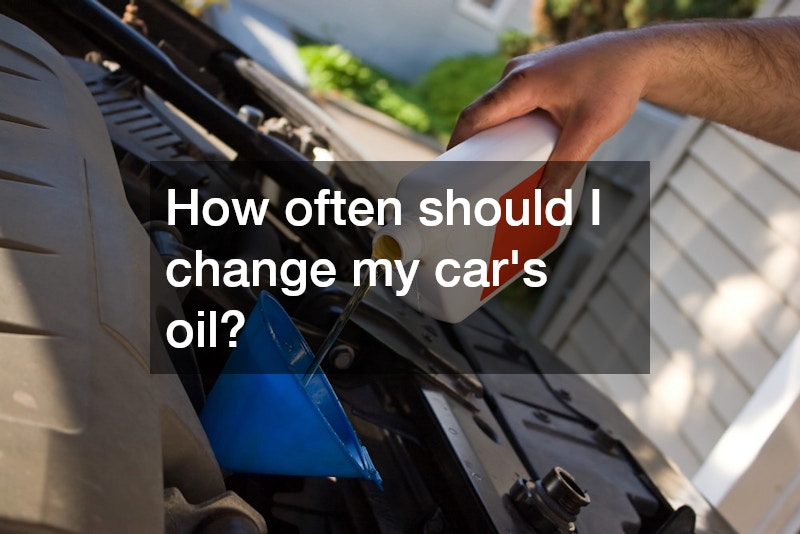Whether you’re a seasoned driver or a new owner of a vehicle, understanding the fundamentals of car maintenance and functionality is crucial. Navigating the complex world of automotive jargon and technicalities can be overwhelming. This is where car FAQs become invaluable, offering quick and reliable answers to common questions. From auto parts to automotive services, having a grasp of essential car facts ensures a well-maintained and safe vehicle. Not only does this guide you in handling basic issues yourself, but it also empowers you to converse knowledgeably with professionals at your local auto body shop or during a visit for paintless dent repair service.
In this article, we will address ten of the most frequently asked questions about cars, providing clarity and insight to enhance your driving and car ownership experience. For anyone interested in ensuring their car remains in optimal condition, understanding these car FAQs is not just beneficial but essential. So, without further ado, let’s dive into these important questions and arm you with the knowledge you need to keep your car running smoothly.
1. How often should I change my car’s oil?

One of the most foundational car questions centers around oil changes, which are vital for the health and performance of your engine. In general, most automotive services recommend an oil change every 3,000 to 5,000 miles. However, the specific interval can vary depending on your vehicle’s make, model, and the type of oil you use. Always consult your car’s manual or a trusted mechanic who specializes in diesel mechanics if your vehicle requires it.
Regular oil changes ensure that your engine is lubricated properly, which reduces friction and prevents overheating. Neglecting this important maintenance task can lead to the accumulation of dirt and sludge in the engine, potentially leading to costly repairs. For those who frequently drive in extreme conditions or have an older vehicle, more frequent oil changes might be necessary.
Using the right auto parts, like oil filters and the recommended oil type, is crucial for optimized vehicle performance. This seemingly simple act of maintenance proves to be a cornerstone in the realm of car FAQs, affecting everything from fuel efficiency to engine longevity. Make sure to keep track of your oil change schedule, perhaps noting the mileage or date after each service.
2. What do the dashboard warning lights mean?
Understanding the meaning behind dashboard warning lights is one of the more technical car questions that every driver should acquaint themselves with. These lights serve as the vehicle’s way of communicating potential issues before they become significant problems. The most common lights include the check engine light, oil pressure warning, brake system alert, and battery charge warning.
When a warning light appears, it’s crucial not to ignore it. Some lights require immediate attention while others may indicate maintenance is due soon. Ignoring these signals can escalate an issue from a simple fix, like needing oil, to requiring comprehensive automotive services. Consulting your vehicle’s manual or visiting a local auto body shop can provide specific guidance on each light’s indications and severities.
Additionally, advanced cars today have systems that detect issues with wheel alignment, tire pressure, and even the need for wheel refinishing service. Understanding these lights can help prevent accidents and save long-term costs, aligning with the practical knowledge base of car FAQs. Never overlook an illuminated dashboard icon, as it might be an alert that saves from extensive auto collision repairs.
3. What is the best way to improve fuel efficiency?
Among the top car FAQs, improving fuel efficiency is a significant concern for drivers looking to save money and reduce their environmental footprint. Start by ensuring your tires are properly inflated, as low tire pressure can decrease fuel efficiency by up to 3 percent. Regular maintenance, like oil changes and air filter replacements, is essential in keeping your vehicle running smoothly.
Diesel mechanics often emphasize the importance of driving style in fuel economy—avoid rapid acceleration and excessive braking. Smooth, gradual changes in speed can not only save gas but also extend the lifespan of your vehicle. Limiting the use of air conditioning and avoiding idling for long periods can also contribute to better fuel efficiency.
Upgrading to modern auto parts, such as fuel-efficient tires and spark plugs, can further enhance performance. These improvements, often discussed in car questions, are simple yet impactful ways to improve a car’s mileage. Better fuel economy not only saves money but also supports environmental consciousness by reducing emissions.
4. How do I jump-start a car?

Jump-starting a car is a fundamental skill every driver should master, and it’s one of the more frequent car questions you might encounter. To jump-start a car, you’ll need a set of jumper cables and another vehicle with a good battery. First, park the functioning car close to the dead vehicle and turn both cars off.
Attach one end of the red cable to the positive terminal of the dead battery and the other end to the positive terminal of the working battery. Next, connect the black cable to the negative terminal of the functioning battery, and attach the other end to a metal surface on the engine block of the dead car away from the battery. This step ensures safety in case of a short circuit.
Start the engine of the working car, let it idle for a few minutes, and then start the dead vehicle. Once started, carefully remove the cables in the reverse order and allow the jumped car to run for a while to recharge the battery. This simple process is an essential part of car knowledge and can prevent unnecessary automotive services, potentially saving a trip focused on auto collision repairs due to battery failure on the road.
5. What does wheel maintenance involve?
Wheel maintenance, an important aspect of vehicle care often highlighted in car FAQs, is necessary for a smooth and safe driving experience. This involves regular tire rotations, balancing, and alignment services, which help prevent uneven wear and optimize tire lifespan. It’s recommended to have these services performed every 6,000 to 8,000 miles.
In addition, visual inspections can identify wear patterns that signal other issues, such as excessive air loss indicating the need for a wheel refinishing service. Maintaining proper tire pressure is critical, as under-inflated tires decrease fuel efficiency and handling while over-inflated tires risk bursting. Most vehicles have automatic tire pressure monitoring, but a manual check is always beneficial.
Another component of wheel maintenance is ensuring that the lug nuts are tight, especially after having new tires installed. This is an area where car FAQs often advise consulting professionals if you’re unsure. Taking these preventive measures maintains the overall health of your vehicle, ensuring safety and performance while driving.
6. How can I tell if my windows need replacing?
Another commonly asked question in the realm of car FAQs relates to window maintenance and replacement. Visibility is crucial for safety, so it’s essential to identify when windows need attention. Look for obvious signs such as cracks, chips, or significant scratches. Even small imperfections can compromise integrity and lead to greater damage.
Examine the windows for fogging between the layers of glass, indicating the seal is compromised. This can reduce visibility and is a sure sign your windows need replacing. Moreover, struggling with noisy or slow-moving windows when opening or closing them is often indicative of a problem that might require repair or even replacement.
In case of irreversible damage or aesthetic enhancement, consider visiting an auto window tinting service. They provide comprehensive assessments and solutions tailored to your vehicle’s needs, aligning with car questions that prioritize safety and style. Addressing window issues promptly prevents further complications and maintains your vehicle’s value and performance.
7. Why is my check engine light on?

The illumination of the check engine light is a common issue that drivers may encounter, making this one of the critical car FAQs. This warning can signify various problems, from a loose gas cap to more serious issues like faulty spark plugs or an oxygen sensor.
It’s crucial to address this warning light promptly by consulting with auto mechanics to diagnose the root cause. Ignoring the light can lead to more severe damage and costly repairs down the line. Some modern vehicles have built-in diagnostic systems that provide code readings, which can be useful in identifying issues before consulting a professional.
Understanding the seriousness of a lit check engine light and being aware of the most common reasons it appears can give you a head start in seeking necessary automotive services. Hydraulics-related problems, such as those needing transmission services, can often trigger this light, showcasing its importance in the spectrum of car FAQs.
8. What are the differences between hybrid and electric cars?
With the rise of green technology, the distinction between hybrid and electric vehicles has become a prevalent topic in car FAQs. Hybrid cars use a combination of a traditional combustion engine and an electric motor, allowing for improved fuel efficiency and reduced emissions compared to standard engines.
Electric cars, however, rely solely on battery-powered electric motors, which produce zero emissions and can be charged at home or public charging stations. They require less routine maintenance compared to gas-powered vehicles, as they don’t have components like exhaust systems, spark plugs, or transmission fluids.
Choosing between the two depends on your driving habits and environmental considerations. While hybrids offer versatility for long journeys and varying refueling options, electric cars represent the best choice for environmentally conscious city driving, with lower running costs. Both types contribute to sustainability, making them popular subjects within car FAQs.
9. How do car warranties work?
Understanding car warranties is an essential part of car ownership and frequently appears in car questions. A car warranty is a promise from the manufacturer or dealer to cover repairs and defects within a specified period, often based on time or mileage, whichever comes first.
There are typically several types of warranties, such as bumper-to-bumper, powertrain, and corrosion coverage. Understanding the specifics of what’s covered under each can help owners avoid unexpected costs. It’s important to note that warranties might not cover wear-and-tear items such as brakes or tires, and any modifications to the vehicle can void the coverage.
Assessing a warranty’s terms allows owners to better plan for potential future expenses and decide if additional services like paintless dent repair service should be considered for more comprehensive coverage. With reliable information from car FAQs, warranty knowledge can transform the otherwise daunting process into a manageable and clear-cut aspect of car maintenance.
10. When should I consider replacing my car?

Determining when to replace a vehicle is a significant decision included in car questions that involves evaluating multiple factors. If repair costs consistently approach or surpass the vehicle’s actual value, it might be time to consider a new car. Other indicators include frequent breakdowns or safety deficits not addressed through regular maintenance. If the car fails emission tests or has diminished fuel efficiency that affects driving costs significantly, it hints that replacement should be considered to ensure safety and efficiency. Consulting with professionals at a local auto body shop can provide impartial insights on whether continued investment in repairs is a wise decision. By keeping abreast of these car FAQs, owners are prepared to make informed choices that align with both personal preferences and fiscal sensibilities.
Understanding the basics of car FAQs is an invaluable asset for any vehicle owner. Through this comprehensive guide, we’ve explored vital topics such as the importance of regular oil changes, the meaning of dashboard lights, and the distinctions between hybrid and electric cars. Armed with this knowledge, you’ll be better prepared to keep your car in top condition, ensuring safety, efficiency, and longevity.
By staying informed, you can approach car maintenance and repair decisions with confidence, avoiding costly mistakes and unexpected breakdowns. Regularly educating yourself about your vehicle’s needs empowers you to ask the right questions when visiting a mechanic, saving both time and money. Remember, proactive care not only extends the life of your car but also enhances your driving experience. Whether you’re navigating daily commutes or planning long road trips, a well-maintained vehicle is your ticket to peace of mind on the road. Take charge of your car’s health today and enjoy the benefits of informed ownership for years to come.
